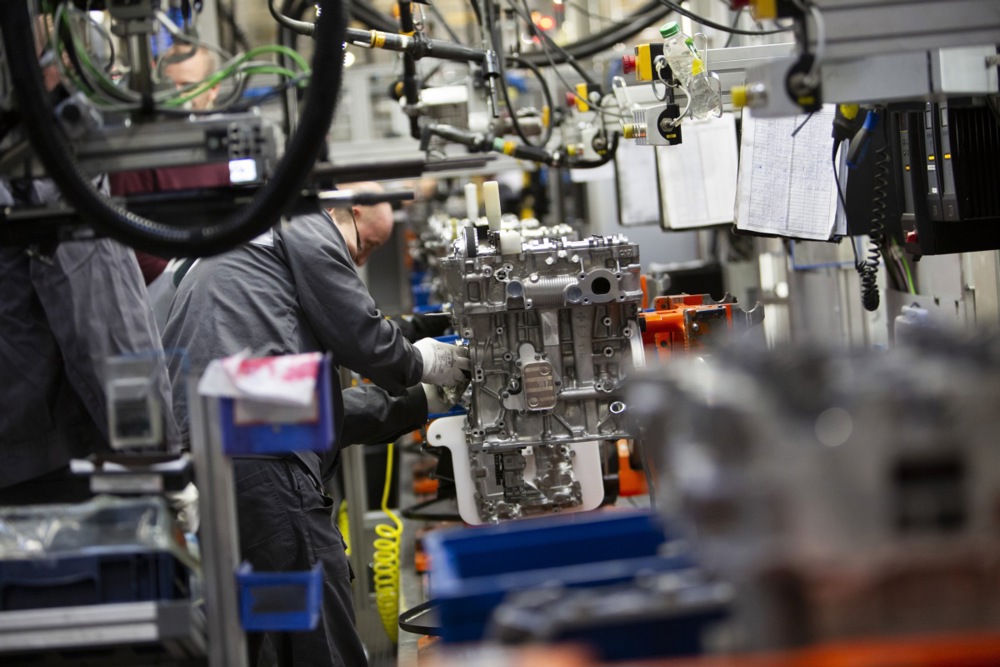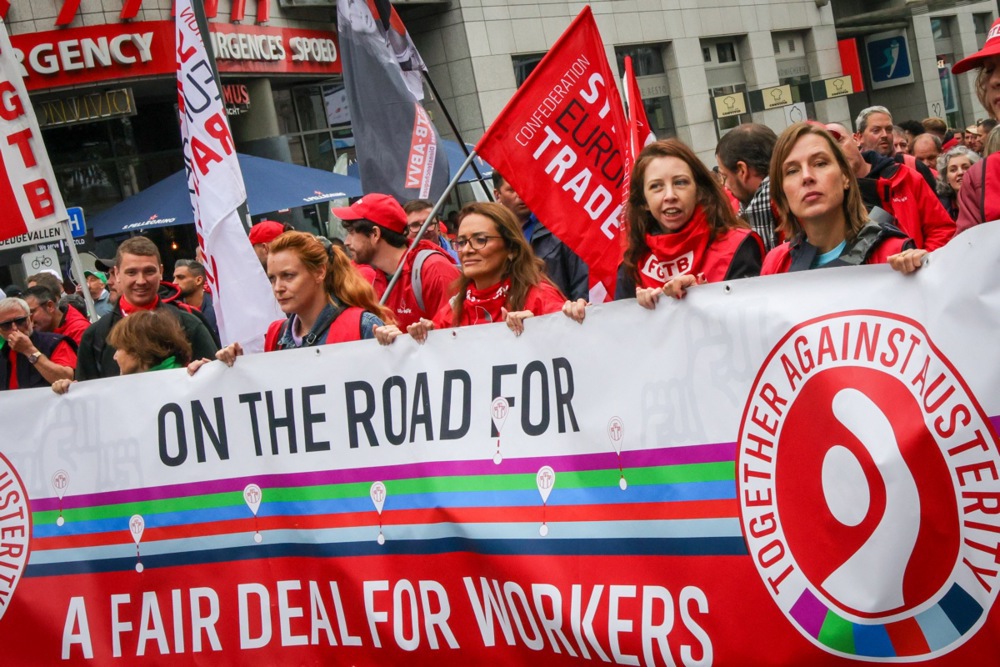Six months after pension reform, French cabinet woos unions with wage hike talks
The French government convened trade unions and business organisation leaders for a high-level ‘social conference’ that focuses on wage increases on Monday (16 October), months after a much-decried pension reform brought government-union dialogue to a standstill.

The French government convened trade unions and business organisation leaders for a high-level ‘social conference’ that focuses on wage increases on Monday (16 October), months after a much-decried pension reform brought government-union dialogue to a standstill.
The conference marks a “new step in [French] social democracy,” Prime Minister Elisabeth Borne told participants at the opening ceremony, hoping that “work pays better, especially in some essential sectors”.
Due to the sustained inflation ever since the start of Russia’s invasion of Ukraine in February 2022, reaching the annual average of 5.2% for 2022 in France, real wages have been going down.
Data from the OECD, an international organisation of mostly rich countries, found real wage growth was negative across almost all rich countries between the first quarter of 2022 and that of 2023, bar the Netherlands, Israel, Costa Rica, and Belgium. The drop in France amounted to -1.5% in the third quarter of 2023.
Moreover, at the EU level, sectors with the most severe labour shortages, including electricity & gas, administration, and food services, show wages 9% lower than average, the European Trade Union Confederation (ETUC) found – hinting at a wage block to explain lower recruitment levels.
In simple terms, wages have been growing at a slower pace than the general increase in prices. This is making low-paid workers, especially those in sectors with critical labour shortages, worse off.
“The republican promise of upward mobility has often been questioned,” Borne said, adding that such a conference would help reinforce “social promotion and increase wages” and put purchasing power at the heart of France’s social agenda.
Fall in real wages could fuel social unrest, labour organisation warns
As soaring inflation erodes the purchasing power of low-income earners and decreases real wage growth,…
3 minutes
Sub-minimum wage
Unless all other wages, the levels of which are determined by companies themselves, or a corpus of sector-specific companies known as branches professionnelles, the minimum wage is pegged to inflation – and has been rising by 13.5% in the past 18 months, according to government figures.
This increase is higher than what some branches have been able to pay their own employees – resulting in workers being paid less than the minimum wage.
It is high time the government “holds companies accountable,” far-left CGT union leader Sophie Binet said in an interview with daily La Tribune, alongside her centre-left CFDT counterpart Marylise Léon.
Both want those firms that have not negotiated wages up to do so immediately. As for branches, they have a legal obligation to review their wage levels once a year to account for new economic realities and adjust for inflation – but 80 out of 170 have failed to meet such requirements.
There is a fine line “between political willingness [to improve the status quo] and very complex legal mechanisms that can turn out to be no more than a fool’s errand,” Frank Morel, a labour market expert, told French think-tank Institut Montaigne in an interview.
A number of legal provisions, adopted over the past 20 years to avoid this very issue, have yielded only limited results, in large part due to their complexity and numerous carve-outs.
This time around, the government is looking to freeze exemptions to social contributions payments companies can benefit from, should they not be at par with minimum wage levels. CGT’s Binet, meanwhile, wants all wages to be pegged to inflation.
Labour shortages felt all over Europe
On top of rising costs, Europe’s companies are facing another worry – the lack of…
6 minutes

Post-pensions reform
This ‘social conference’ comes just six months after the adoption of an infamous pension reform, which saw the legal retirement age go from 62 to 64. Workers took to the streets in historic numbers to fight against the bill, while trade unions, in a rare show of unity, allied against the government’s plans.
This trans-union unity is holding on, far-left CGT union leader Sophie Binet told La Tribune, arguing that the pensions bill has fuelled long-lasting anger across the country. Only recently have trade unions agreed to meet with government officials again – after months of an often fraught dialogue.
Ultimately, tensions are not quite as exacerbated as in early 2023. “Priorities have shifted slightly in light of an anxiety-inducing international situation and a context that [shifts the focus] over to purchasing power and wage levels” rather than pensions, Franck Morel explained.
In April, President Emmanuel Macron announced the launch of a new ‘life-at-work’ pact, after people’s disenfranchisement with their jobs appeared to have reached all-time lows. With this social conference up and running, the government hopes that tackling wage levels may contribute to making workers feel just a little better.
Make the pensioners solve the pensions crisis
Welcome to EURACTIV’s weekly Economy Brief. You can subscribe to the newsletter here. While the…
10 minutes
[Edited by János Allenbach-Ammann/Zoran Radosavljevic]




